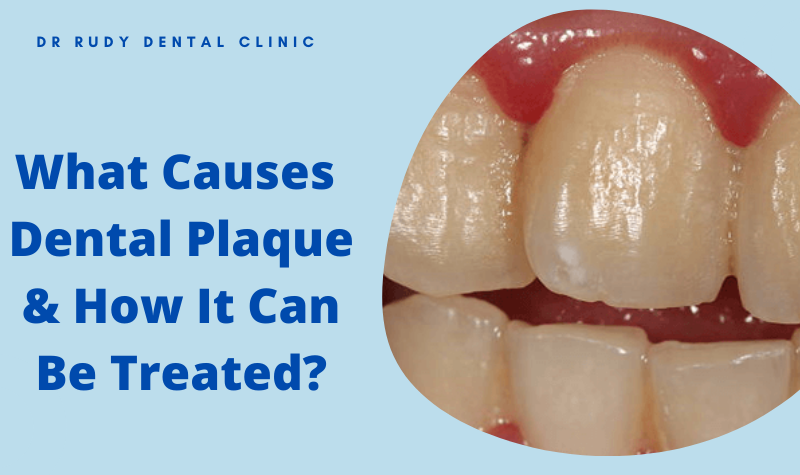When you first wake up in the morning, you might have felt that your mouth, especially your teeth, has a slippery or fuzzy coating that only goes away if you brush your teeth thoroughly. Well, that’s nothing to worry about as it’s called dental plaque, and it’s fairly common. Read on to know more about what causes it, how to treat it and how to prevent it from forming.
What is Dental Plaque?
Dental plaque is a sticky film that forms on your teeth. It is also known as biofilm as it’s a community of microbes that are surrounded by a polymer layer. The sticky coating is not a good thing as it lets microbes attach themselves to surfaces in your mouth, where they can grow into microcolonies.
How Plaque Differs from Tartar?
When you don’t remove plaque from your mouth regularly, it can gather minerals from your saliva and transform into a hard and yellow (or off-white) substance known as tartar. It builds up along the gumline on the front or back of the teeth.
What Causes Dental Plaque?
Bacteria cause dental plaque. They build upon the surfaces of your teeth and form a plaque biofilm on your teeth or gumline. It is very common and not something you should stress about. However, you should ensure that the bacteria don’t mingle with sugar as it can produce harmful acids for your oral health.
Why Do You Need To Stop Excessive Dental Plaque?
If you don’t keep an eye on the plaque, it can lead to serious issues like tooth decay, tooth abscess, tartar, periodontitis, and gingivitis. All of these oral health problems can worsen with time and needed the immediate attention of a dentist.
How to Treat Plaque on Teeth?
There is no simple shortcut to prevent plaque from forming in your mouth. However, there are a few methods to treat plaque on teeth. Some of them are:
- Floss the teeth daily to eliminate food particles and plaque that accumulate between the teeth.
- Make use of fluoride toothpaste that helps in protecting teeth from decay by strengthening your enamel.
- Get rid of the plaque accumulation by brushing twice a day thoroughly.
- Purchase an antibacterial mouthwash and use it regularly to eliminate dental plaque.
- Avoid sugar-laden foods and drinks that can help plaque turn into acid.
- Sometimes, chewing sugar-free gum or rinsing the mouth with water after every meal can help reduce dental plaque formation.
How to Lower the Plaque Formation and Other Associated Risks?
As mentioned before, you cannot control dental plaque from forming. However, you can eliminate it regularly and ensure that it doesn’t affect your dental health by visiting a dentist regularly. A dental hygiene appointment will help you remove the dental plaque from all the nooks and crannies you can’t reach on your own. One of the most reliable dental clinics in California is Dr. Rudy’s Dental Care Beverly Hills. We have a team of dentists who will eliminate all the dental concerns and help ensure better oral health. To get a free consultation, call 310-550-0800.
References
https://www.colgate.com/en-us/oral-health/plaque-and-tartar/plaque-on-teeth-causes-and-treatment
https://www.healthline.com/health/dental-and-oral-health/plaque#tartar

